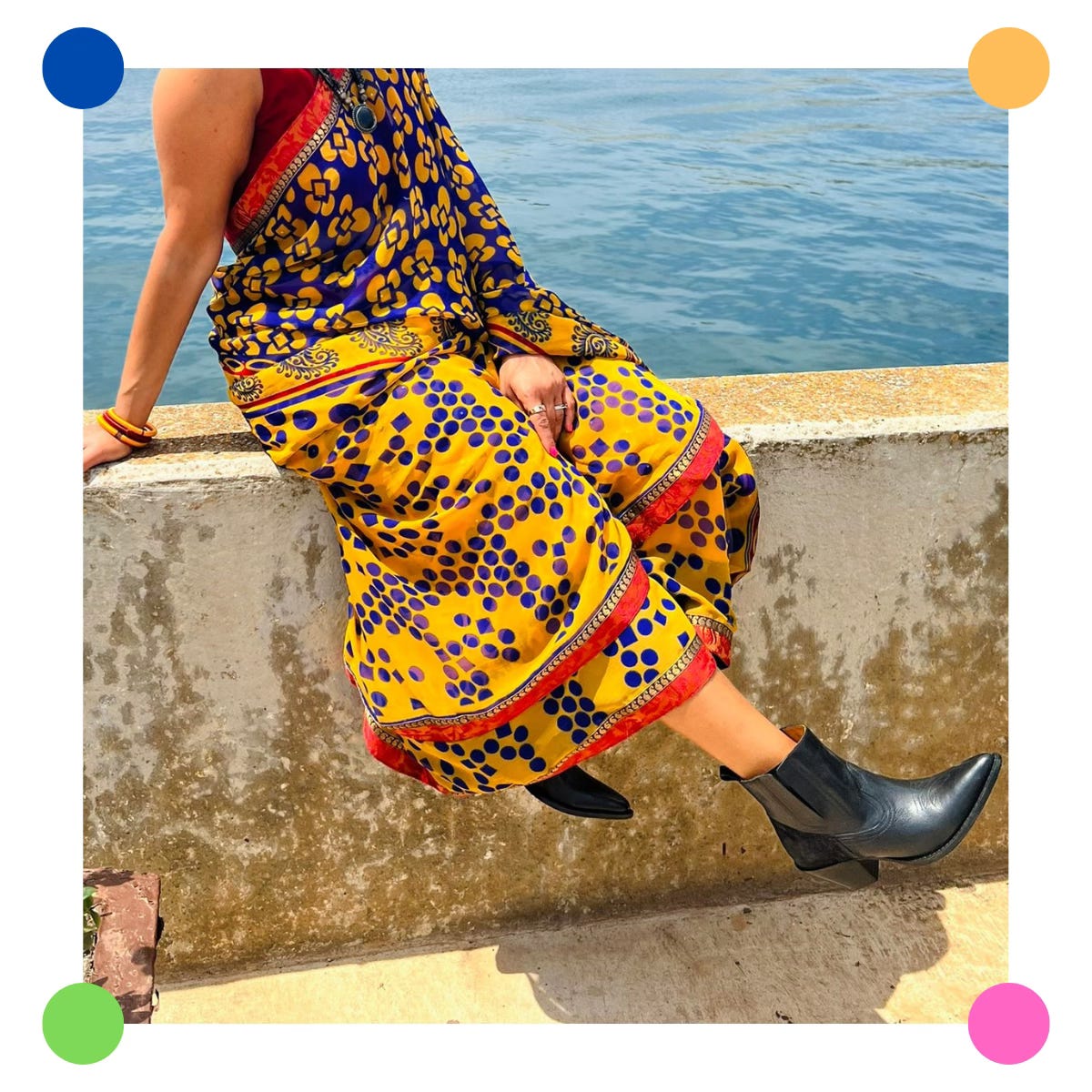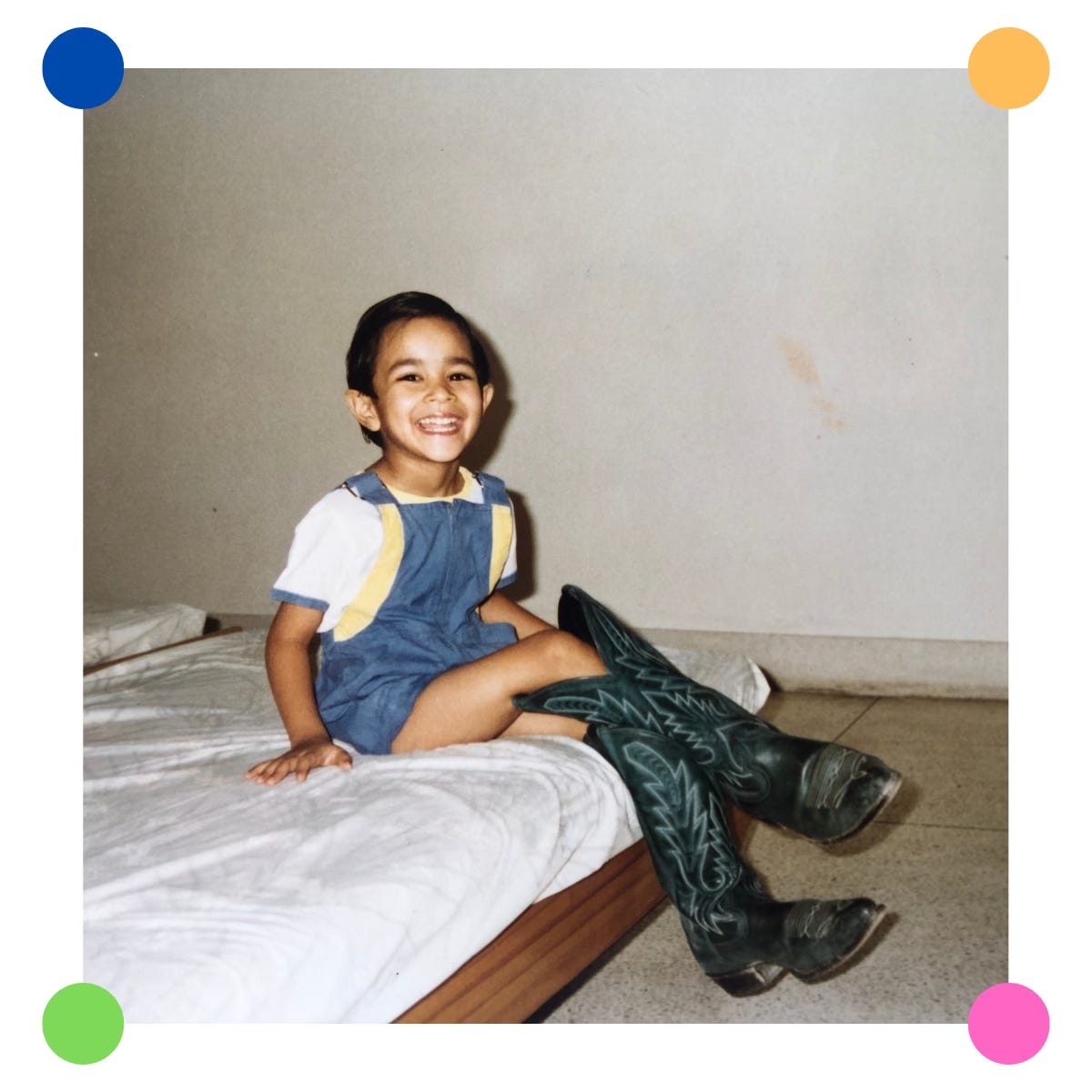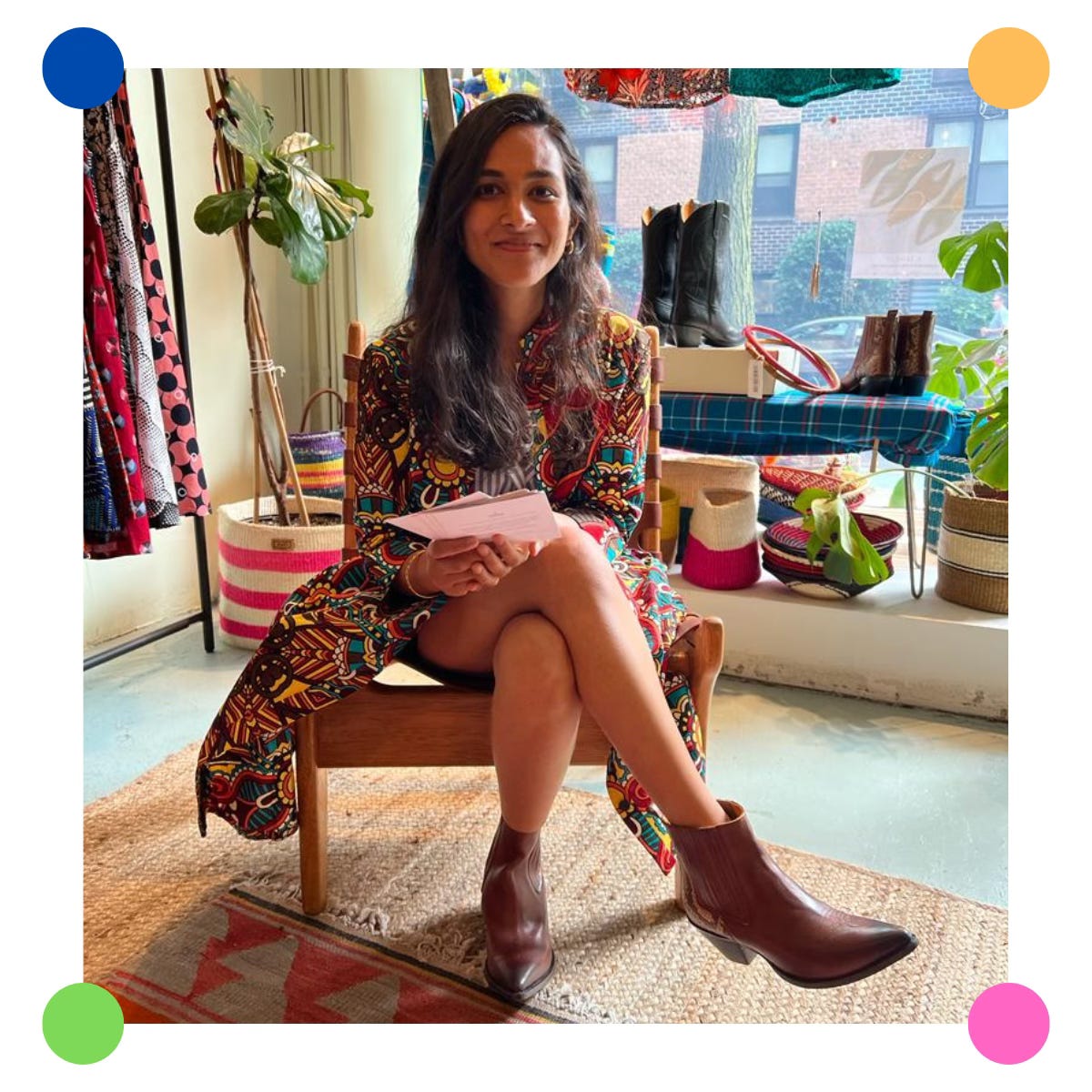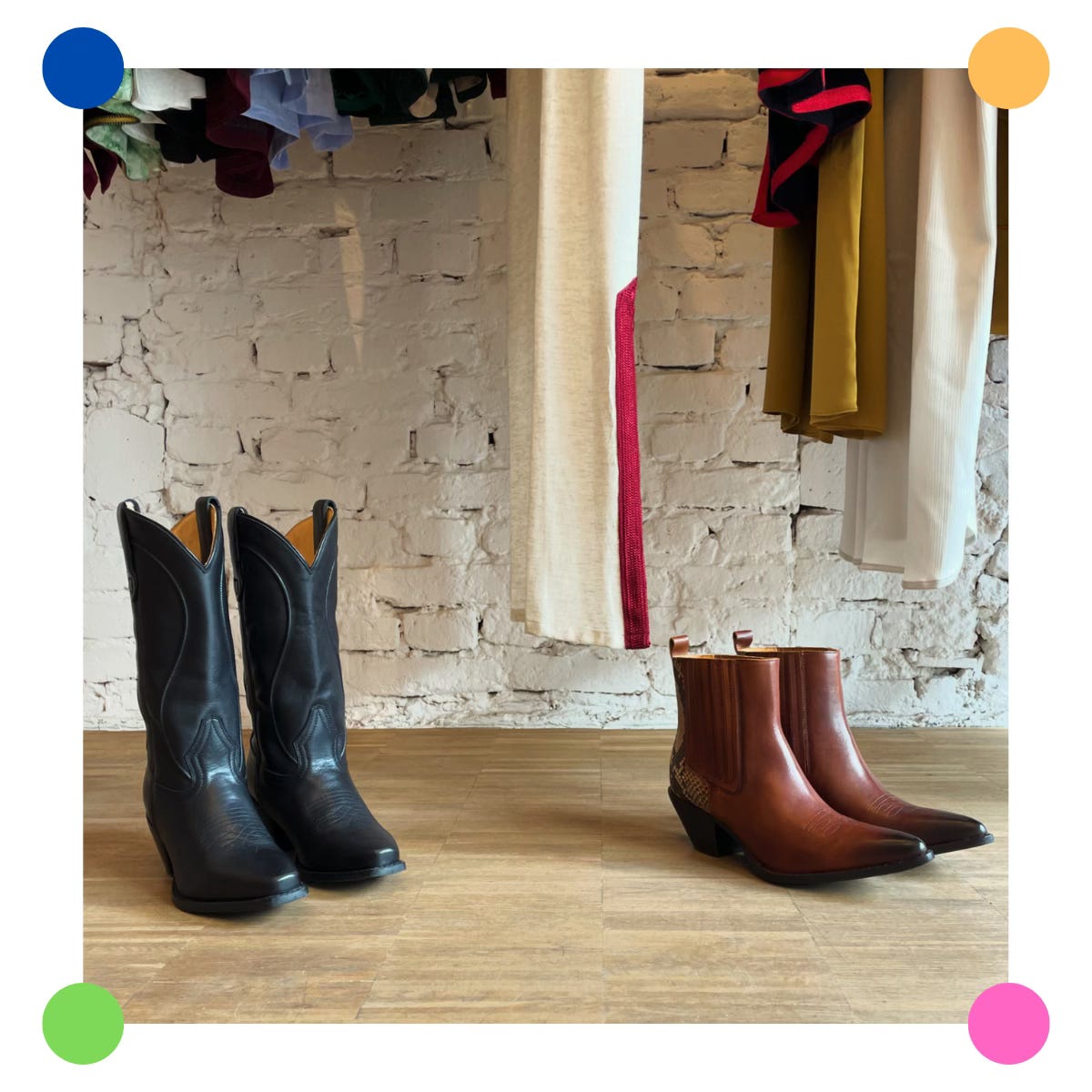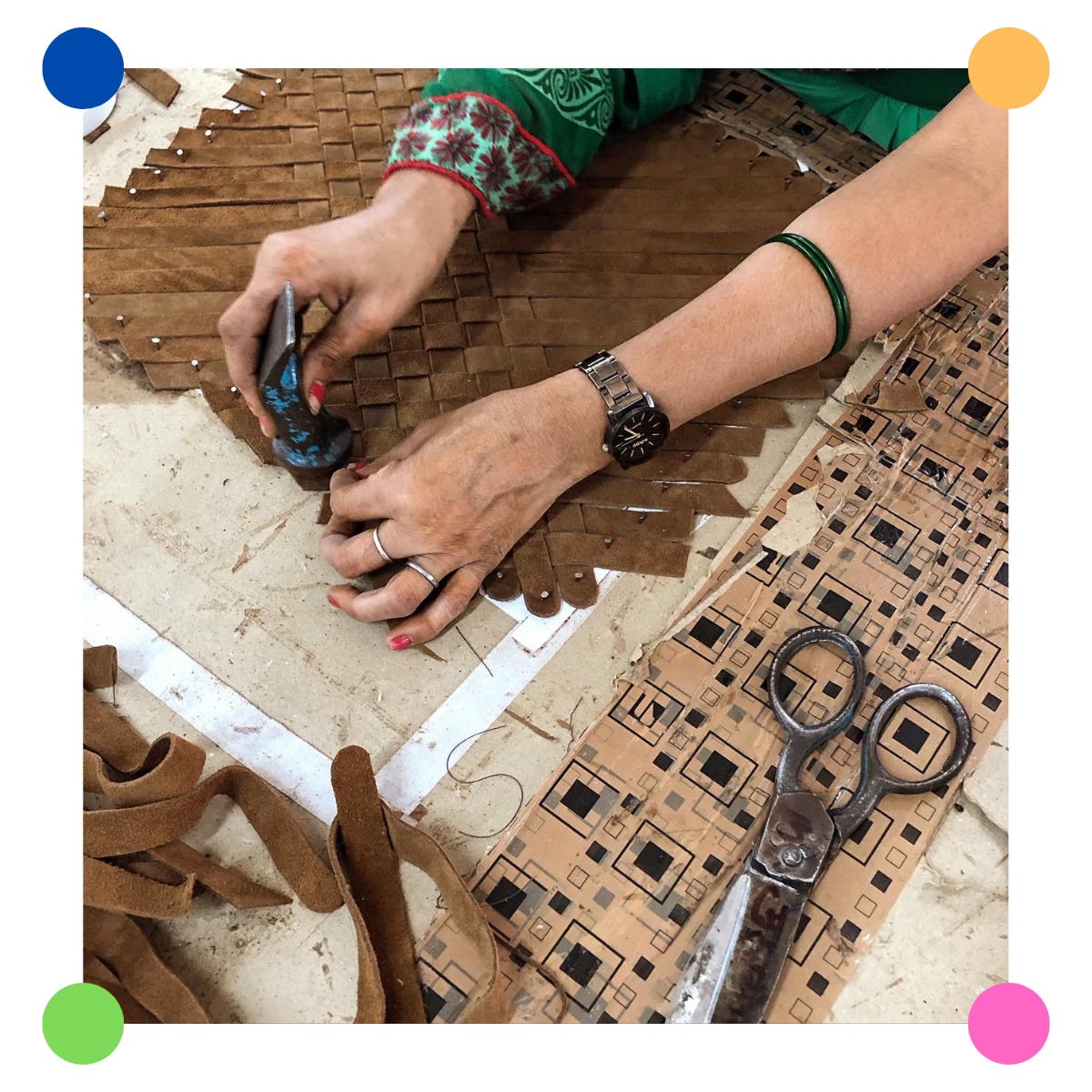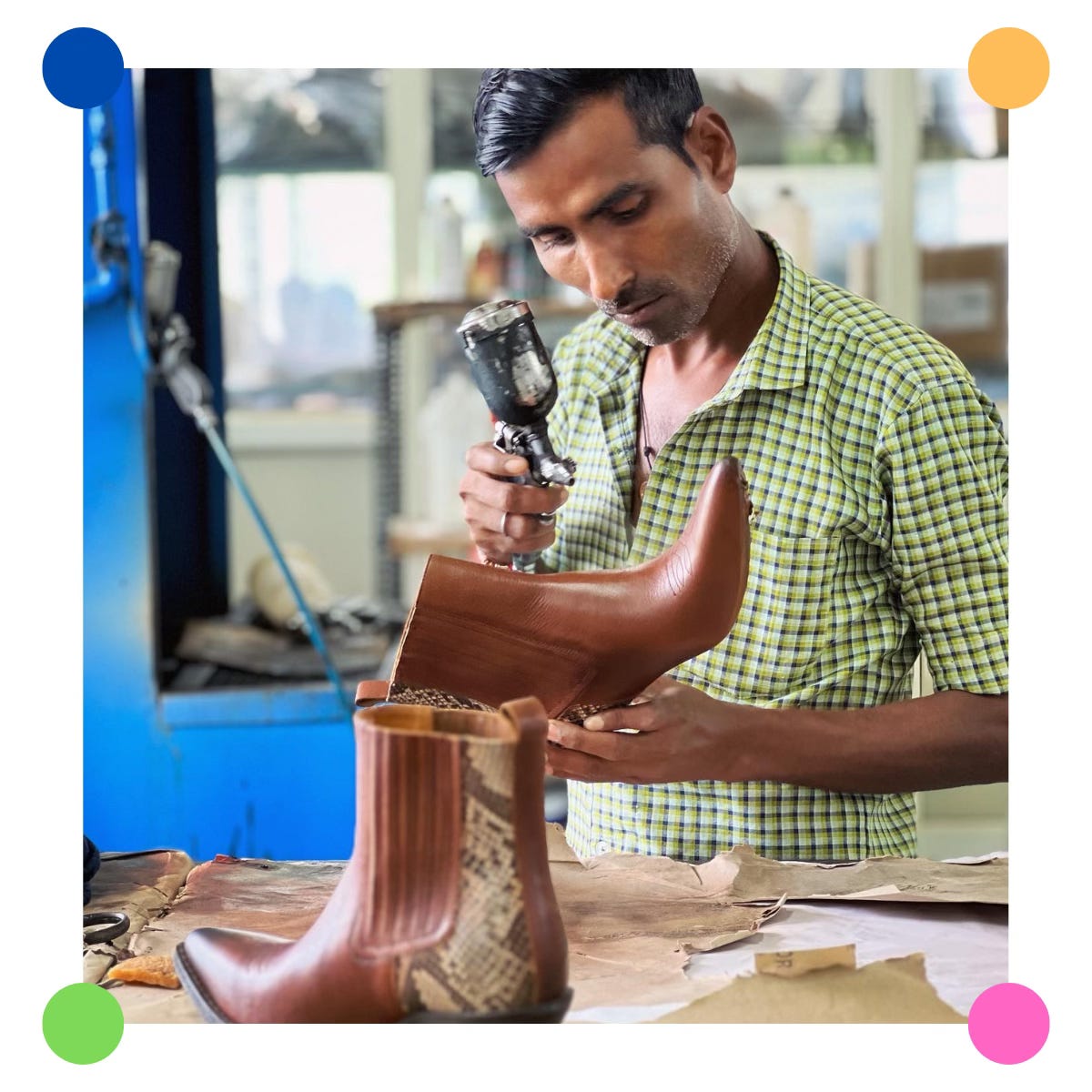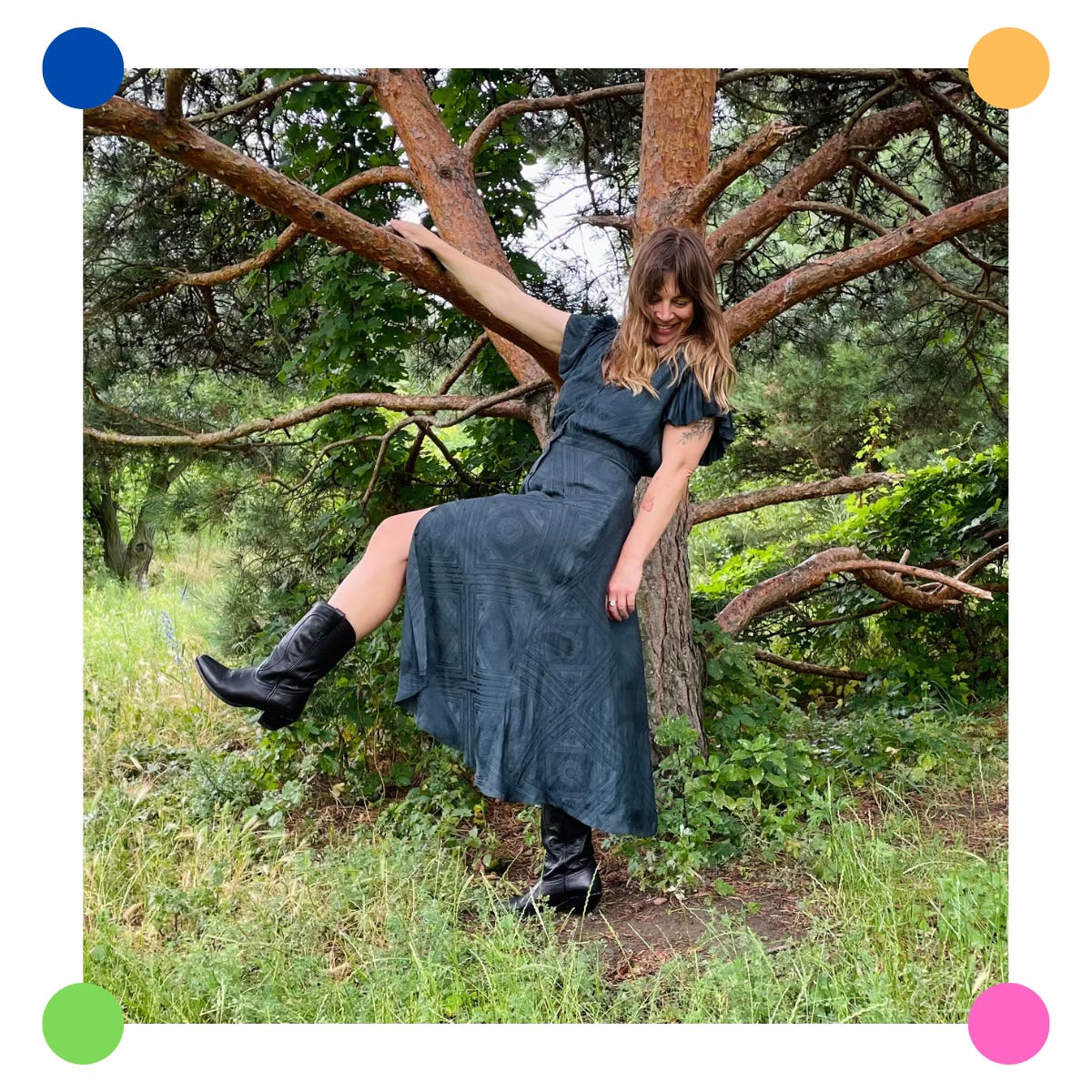Mitali Gupta: From corporate girlie in NYC to Berlin-based cowboy boots designer
In this Q&A, we sit down with Mitali Gupta, the creative force behind Chalo, a label that's reimagining the cowboy boot for the modern woman
A sari, styled with a pair of cowboy boots – not a traditional combo, right?
However, Mitali Gupta, the Berlin- and India-based founder and designer of Chalo, is on a mission to make cowboy boots a functional and versatile all-occasion wear. Founded by Mitali in 2023, Chalo (translates from Hindi to “let’s go”) produces small-batch, handcrafted cowboy boots from her family-owned tannery in India.
Before Chalo, Mitali got her start working in corporate finance in New York City, where she held various roles across product development, innovation, design and strategy. Her pivot from finance to the startup world, and now fashion, stemmed from her desire to pursue something creative. Ultimately, it was her connection to her family's tannery in Kanpur, India that led her to launch Chalo.
In this Q&A, Mitali shares:
Her philosophy behind Chalo, and how she is showcasing the incredible creative abilities of local artisans in India 👢
Chalo’s environmentally-responsible, small batch production process 🧶
Her learnings from bootstrapping and launching Chalo 💼
Let’s start with the basics. Why cowboy boots?
Mitali: I grew up seeing my father wear cowboy boots in the 90s in India, and they naturally became a part of my family and heritage ever since. While many people perceive cowboy boots as walking or riding boots, I saw them being styled on many occasions and naturally wore them everywhere. Growing up, my sister and I would also have a little fun going into the factory and designing a few products. In that sense, some parts of Chalo started in my childhood! I’ve seen customers wear their Chalo’s in many contexts: from pairing their cowboys with a sari at an Indian wedding to styling them for an outfit to watch the Calgary Stampede.
What were you doing before launching Chalo?
Mitali: Uprooting and moving has very much been a part of my life: I’m from Kanpur, a city in north India, but I grew up in Mussoorie where I went to a boarding school in the Himalayas. I spent my university and working years between New York, London and Dublin, with New York being my primary base.
I have a background in Economics and Political Science, and I went straight into working in New York after graduation, starting in a Rotational Program at a bank and ultimately moving into a strategic product and market management role at its Innovation Lab. This led to various startup roles until I started Chalo.
After living in New York for a long time, I sought a change. My move to Berlin wasn’t planned – I had visited the city a few times and liked it, so when an opportunity presented itself, it seemed like a good time to try something new. I also wanted to be “relatively” closer to India where my family is. I’m now based between Berlin and India which is where I run Chalo from.
“My time spent in corporate jobs was stable and comfortable, but I often felt I was missing a spark. I wanted more control over my work and the ability to shape something from the ground up.”
Was there a definitive moment when you knew you wanted to launch a business of your own?
Mitali: There wasn't a single "aha" moment for me, but rather a series of experiences that built up over time. My time spent in corporate jobs was stable and comfortable, but I often felt I was missing a spark. I realised I wanted more control over my work and the ability to shape something from the ground up. The idea of creating a business that aligned with my values, kept me connected to my homeland and allowed me to make a difference in my corner of the world became increasingly compelling. And so, I decided to give Chalo form.
Could you describe your collection?
Mitali: With Chalo, I wanted to create something that would simplify women’s wardrobes and save space. This is where handcrafted, versatile and quality boots come into play. I have a strong aversion to fast fashion and wastefulness and did not want to compromise on these elements. At the same time, the boots needed to be accessible to many demographics and communities.
Our launch collection is intentionally designed to be small, simple, and easy to style, so even if you own one pair of Chalo’s, you can wear them in several different ways. The idea is that they can easily complement what you are wearing or set the tone for an outfit, and in that sense, they are very accessible.
How did you go from idea to launch?
Mitali: At the moment, Chalo is entirely bootstrapped and I take ownership of all aspects of running the business, of course with the support of our tannery. Chalo is still a small brand, so sharing it organically through communities and networks who truly believe in the brand, the product, and our ethos is so powerful. It’s these word-of-mouth moments and organic growth that have been incredibly helpful in the early days of the brand.
I also write a monthly newsletter to share my inspiration, making methods and new designs. With the newsletter, I hope to support the stories and craft of small businesses, share fresh discoveries from the world of design and slow living, and hear from and tell the stories of our customers.
Which style would you recommend to someone who wants to start incorporating cowboy boots in their wardrobe?
Mitali: Typically, people new to cowboy boots choose between our short Chelsea-style boots: the Chelsea Cowboy in black or the Wild Oak in brown. The beauty of these boots is in their simplicity and comfort, and they add a touch of oomph to any outfit! For those feeling more adventurous, our tall boot, the Classic Cowboy, has been a popular choice.
What’s your process for each design?
Mitali: As the fashion industry moves towards more responsible ways of production, it has been imperative for us to build Chalo thoughtfully from the ground up. This has also meant being transparent and responsible about our production processes. Where possible, we utilise solar energy for our production needs. We air- and sun-dry all our leathers to keep machine and chemical use to a minimum.
The trims and discarded pieces from the production process are used to make components of other small and upcycled products, i.e. puller tabs, stoppers (for zips) and patchwork, which would otherwise end up in landfilled waste. Our leathers are also heavy metal free and our lining leathers are vegetable re-tanned. It is our responsibility to adequately treat exposed materials that may result from our making process. A critical step for us is to treat wastewater and we do this with the help of an in-house wastewater treatment system (i.e. an Effluent Treatment Plant).
“Making our products in India is core to who we are. I am very grateful to work with a team of skilled makers in India and create opportunities that can amplify their talent.”
What would you say is the “Chalo twist” on the cowboy boot?
Mitali: Making our products in India is core to who we are. I am very grateful to work with a team of skilled makers in India and create opportunities that can amplify their talent. To show appreciation for our makers, my father has implemented a program to support the early education of the children of our artisans. Such initiatives and the ability to really make that little bit of a difference, because we are small, we are homegrown, is very special. I like to say that we celebrate both, the pride of being “Made in India'' and the craft we can draw inspiration from, in the West.
“Entrepreneurship demands personal growth as much as professional growth. It’s a deeply introspective journey that… force(s) you to confront your own limitations and resilience.”
What's something surprising you’ve learned about entrepreneurship since starting Chalo?
Mitali: This journey is filled with learnings! It requires embracing uncertainty and adapting on the fly. I used to think successful entrepreneurs and business owners had clear plans and steady paths to success, but the reality is quite different. Alongside growth and freedom, the journey brings unexpected outcomes, setbacks, and moments of self-doubt. These challenges force you to think creatively and pivot quickly, which can be both daunting and exhilarating.
The importance of a supportive community cannot be overstated. Having people who share your values, collaborating with like-minded networks, and saying yes to opportunities are crucial for continuous learning and personal development.
Entrepreneurship demands personal growth as much as professional growth. It’s a deeply introspective journey that is not always linear–the highs and lows of running a business force you to confront your own limitations and resilience. Moreover, I’ve realized the profound impact of small, everyday decisions. These seemingly insignificant choices often lead to the most significant outcomes, shaping your journey in unexpected ways.
Lastly, what does success look like for you right now?
Mitali: I’d like to expand my context for the brand and create more community-driven experiences. I’m working on collaborating with networks to make spaces that support emerging creators and inspire them to share their work. For example, I recently did a pop-up in New York, Mumbai, and Berlin where I partnered with emerging designers and small women-led businesses from New York, Kenya, and parts of India, Nepal, and Europe.
These pop-ups became an incredible space for artists, designers, gallery owners, and new entrepreneurs to share their work, support their local communities, and keep learning. These experiences can be so uplifting and it is the offline events where I really feel alive.
RAPID FIRE Q&A with MITALI
Heeled boot or flat boot? 👢
Boots with a slight lift in the heel area–the best of both worlds!
My go-to beverage while working… ☕
Chai, made from scratch with all the spices and the good stuff (just like home in India) or a comforting cup of coffee with oat milk!
My favourite podcast, newsletter, or book… 🎧
Mitali: Oof, this is a hard one to choose! The Daily, for a quick roundup of news, and the Huberman Lab Podcast, great for insight on the impact of our brains and bodies on our perceptions and behaviours, are solid podcasts. I also enjoy listening to How I Built This with Guy Raz, a helpful insight into the stories of other brands, founders and journeys.
Berlin in one word… 🇩🇪
Complex.
***
To learn more about Chalo, visit their website. Follow Chalo on Instagram (@madetochalo), Facebook and LinkedIn.
This interview has been edited for clarity and brevity. Subscribe to Hatched Asia to stay up to date with must-know women founders, creators and creatives in Asia.







